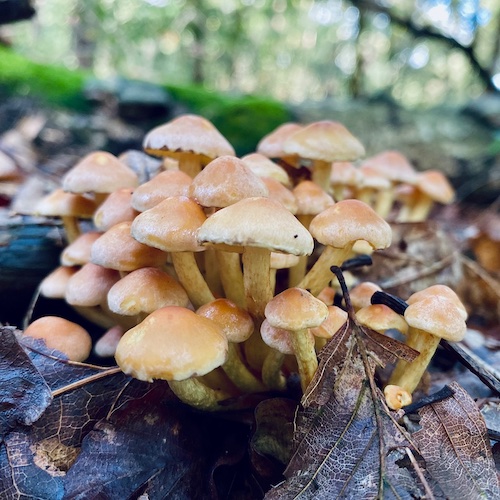Group Therapy
The Inner Critic was always there to let me know what I was doing wrong. The list of “should (not) do’s” was so long that I could never fulfil them. This often resulted in periods of depression and feelings of worthlessness, followed by improvement projects.
This vicious circle kept me occupied and stopped me being who I really was.
Through Gestalt therapy I began to recognize the patterns I was stuck in and also to see how these had helped me to survive in the past.



Group Therapy
For clients that want to do individual work in a group
It can be beneficial to have a place where you can explore and discover new perspectives and possibilities with others.
As children we creatively adjust to the situations we are confronted with to enable us to survive and grow. We learn how to relate to ourselves and others by the way we are treated, and don’t always question this.
Group therapy can provide a place where everyone is responsible for a safe place to explore, experiment and learn new ways of relating to yourself and others. For general group therapy it is possible to register individually. If you have additional health insurance that covers Gestalt Therapy it is often possible to declare the costs.


Group Therapy
The inner critic or inner judge
- Do you criticise yourself a lot?
- Do you have high standards and find yourself criticizing others a lot?
- Do you give yourself the time to learn something new?
- Is making mistakes a sign that you are not good enough?
- Do you find yourself more concerned with what others need, think, or expect from you than what you need yourself?
Burn-out and other stress related illness or complaints
Burn-out and other stress related illnesses are occurring more and more these days. When time is taken for the situation in which stress-related illness arises, self-criticism is often present. There is explicit self-criticism in the form of shoulds and should nots; “I should (not) have done or said this or that…” Underlying this self-criticism, is often an (unconscious) negative belief about ourselves.
Are the texts in your mind really true?
Old beliefs laid bare
This way of being with yourself is often unconscious. Many of our reactions to situations were formed at an early age. This is also why the emotions which follow an inner critic attack can feel so all-consuming.
Burn-out and other stress related illness or complaints
Burn-out and other stress related illnesses are occurring more and more these days. When time is taken for the situation in which stress-related illness arises, self-criticism is often present. There is explicit self-criticism in the form of shoulds and should nots; “I should (not) have done or said this or that…” Underlying this self-criticism, is often an (unconscious) negative belief about ourselves.
Are the texts in your mind really true?
Old beliefs laid bare
This way of being with yourself is often unconscious. Many of our reactions to situations were formed at an early age. This is also why the emotions which follow an inner critic attack can feel so all-consuming.


The therapy includes
- How and why we develop an Inner Critic.
- Myths and functions of the Inner Critic.
- Meditative exercises to become more aware of our experiences.
- Using your own curiosity to help carry you through the inner judgements.
- How to turn down the volume of the Inner Critic so you can hear your own inner voice.
- Discovering what is limiting you and what makes you feel alive.
- Tools for this transition, and future transitions.
Healing presence, for yourself and for another
Gentle exercises, meditation and time for sharing in pairs and small groups will be part of each session. Being present for yourself and for others can have a deeply connective and healing effect.
“The habit of unworthiness is a kind of splitting off, causing us to show up only partially for life, worthiness is felt in direct proportion to our ability to live an integrated life. Rather than outcasting the parts of ourselves which were once rejected, we work to reclaim those parts of ourselves that are afraid of being seen, hurt, or left behind. We allow and include them, moment by moment, strengthening our capacity for inclusion, for belonging. It is the practice of bringing the fullness of our presence to a moment, whether it’s filled with rage or an upwelling of sadness, to say, “This too belongs”
Excerpt from “Belonging: Remembering Ourselves Home” by Toko-pa Turner, 2017 © Her Own Room Press (belongingbook.com)


Groep therapy
Body work
Do you long for authentic contact with yourself and with others? Discover the body’s wisdom.
Taking time for our bodies and our senses can bring new perspectives. Whether you’re used to checking in with your body or not, this will be an opportunity to discover more about who you are.
The meaning of illness and pain
Illness or pain do not just arise because you haven’t cared well enough for your body. They are often a result of sensitivity to situations which are toxic to you; this can be a relationship or something as unavoidable as the pollution of the planet.
Finding more inner balance can help you to be with your situation in a clearer way and without so much judgement.
The body’s kindness
The body is basically kind. It carries our tension and pain when we push ourselves too hard, or demand from ourselves that we sit or stand in the same position all day. It also carries our history. Being in touch with our body doesn’t just mean being in touch with tension and pain, but is also a way of becoming aware of the strength and gentleness that is also present.
Healing presence, for yourself an for another
Gentle exercises, meditation and time for sharing in pairs and small groups will be part of each session. Being present for yourself and for others can have a deeply connective and healing effect.
